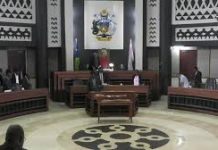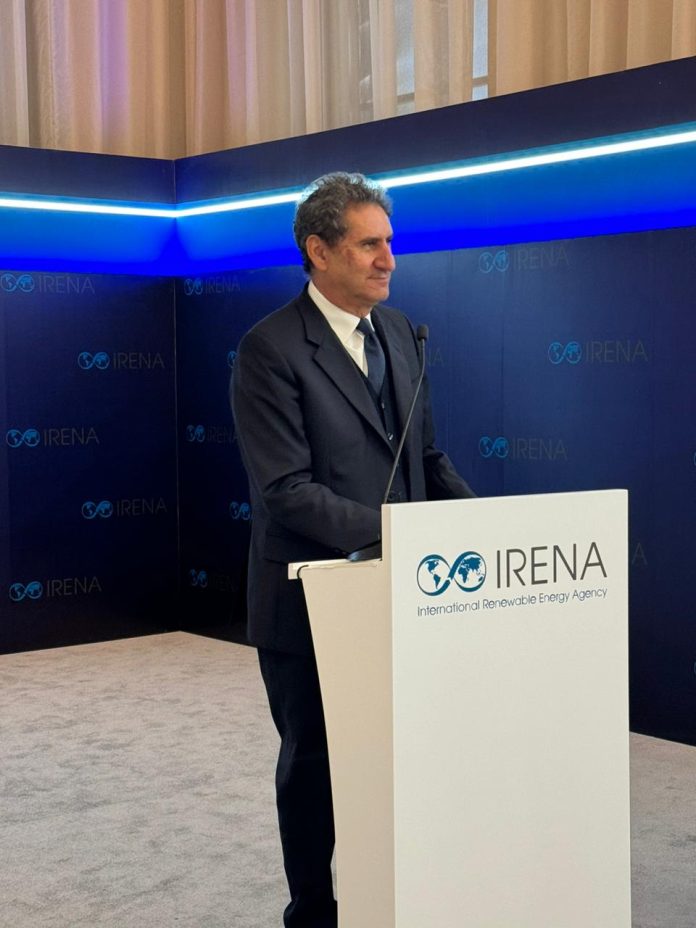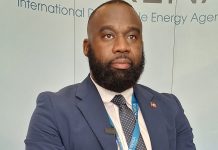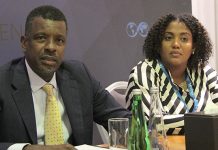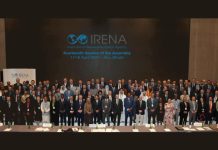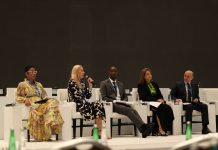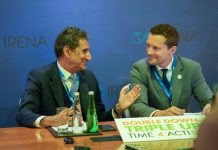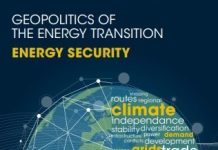The Director General of IRENA, Francesco La Camera has told the opening session of the 14th International Renewable Energy Agency (IRENA) Assembly in Abu Dhabi that countries must transition away from fossil fuels.
“COP 28 has delivered this message clearly, recognising the imperative of tripling renewables and doubling efficiency by 2030, while transitioning away from fossil fuels.
“Let me recognise the leadership of our host country, the United Arab Emirates that spearheaded critical advancements in global climate action and delivered outcomes of historical relevance for all of us. We have entered a new phase in the energy transition: we have to deliver against these COP28 targets, adopted from IRENA’s World Energy Transitions Outlook, for a chance to get on a 1.5-degree pathway,” La Camera told delegates attending the Assembly.
La Camera highlighted the significant growth in renewable power, with 87 percent of new power coming from renewables in 2023.
“2023 was another record year for renewable power, with 473 GW added to the global mix.
“87 percent of all new power was renewable, with 13 percent accounting for fossil fuel and nuclear power combined. This is also a significant jump compared to 2022, when almost 300 GW of renewable power was added, so 2023 is indicating a positive trajectory.
However, he expressed concern over the geographical concentration of this growth and the need for broader global participation.
“Investment remains concentrated in a few technologies, while meeting the tripling target requires harnessing of all renewable sources.
“A worrying trend is also persistent in geographical concentration. 83 percent of new additions were in China, EU and the U.S. This leaves a vast majority of developing countries behind, despite massive economic and development needs. In the course of this Assembly, we will have targeted discussions on how to rectify this situation.
“While there is progress, it falls short of what is needed annually,” La Camera cautioned.
He stressed the importance of investment in enabling technologies and infrastructure.
“The 2023 deployment numbers also fall short of what is required, 473 GW was less than half of what IRENA estimates is needed on an annual basis. This means that we will have to do more in a shorter period. IRENA tracks the energy transitions progress closely across key indicators. Year on year, while we see some progress it is not nearly enough of what is required. Importantly, investment in enabling technologies and infrastructure is also lagging across the board.
“And much has to be done in the coming six years. We need to be focused and united in advancing solutions we have at the necessary speed and scale to set the stage for post 2030 action,” said La Camera.
He outlined IRENA’s strategic pillars for achieving renewable energy goals, emphasising the importance of modernising infrastructure and establishing robust policy frameworks.
“These components form the bedrock of the goal to triple renewable energy by 2030, and are also integral to IRENA’s Medium-term Strategy, adopted in the last Assembly session. This Assembly session has been structured to facilitate discussions on these critical issues, as international cooperation is the only way to fulfill this essential global agenda,” he said.
La Camera acknowledged the challenges ahead but expressed optimism in the opportunities that the energy transition brings for economic transformation and poverty alleviation.
He urged continued innovation, collaboration, and determination towards a sustainable and equitable future.
“We are entering a new era of change, one in which the energy transition will drive economic transformation. This change is bringing unprecedented new opportunities that can revitalise economies and lift people out of poverty”.
He explained how the energy transition are central in today’s decision-making and with real impact on everyday lives.
“Looking ahead, we know there will be challenges. Some we can anticipate. Others we cannot. But so long as we remain on the path of innovation, collaboration, and determination, we can reach a renewables-based energy future that will underpin a sustainable and more equitable world,” La Camera said.
During the ‘High-Level Plenary on Tripling of Renewables’ Wednesday it pinpoints specific, immediate steps to actualise the COP28 outcomes.
The discussions explore how to optimise international cooperation to achieve tripling renewable power capacity by 2030, effectively monitor progress and course correct towards tripling renewable energy capacity targets.
The discussion was moderated by Becky Anderson from CNN.
As moderator of the session, Anderson reminded everyone that there is a huge gap between the Global North and the Global South in progress towards meeting the renewables target.
“IRENA plays a role in tracking this progress, confirming that the world is off track. So here we are, gathered to explore the challenges and opportunities to make sure the transition is back on track,” she said.
In the first intervention during the panel discussion, Kadri Simson, Commissioner for Energy, EU, said that while COP28 was a success, the focus now should be on implementation.
“It is all about implementation. 2030 is only six years away,” she said.
“COP29 should prioritise renewables and address financing challenges to replace fossil fuels. The EU has significantly raised its renewable targets and is planning beyond 2030. Public funds are insufficient, necessitating improved access to private financing. EU member states are showing great ambition in reducing dependence on fossil fuels, with investments now focused on improving transmission and distribution grids.” she said.
Simson said that efforts need to be taken on a more global scale.
“The challenge is that public funds are not enough. So, we have to address the issue of how private finance will be accessible to the remaining world,” she explained.
Dr Amani Abou-Zeid, Commissioner for Infrastructure and Energy, African Union engaged in the panel discussion talking about the renewable energy trends in Africa.
“Africa’s emissions are three percent of global emissions, she said. “The continent is a home to the largest solar farms”.
She stated that Africa is a world leader when it comes to renewables but is still suffering from serious energy poverty.
“More than half of our population has no electricity access and 90 percent of our population do not have access to clean cooking. Africa is endowed with huge potential of renewables,” she said.
CNN moderator, Becky Anderson, followed up asking “So what is missing?” the answer is infrastructure and lack of investment. What the world needs is the universal access to electricity and action to achieve it, was the final conclusion of this intervention.
Lisa Cummins, Minister of Energy and Business, Barbados, said that financing should be fit for purpose for developing countries to enable them to meet their energy transition targets.
“We are in discussions and are already witnessing financing pledges, but the problem is the terms and conditions that come with most capital. If the cost of capital is high, it will certainly affect consumer prices, making electricity unaffordable for developing countries. So, financing must be fit for purpose for SIDS and other developing countries.
Parviz Shahbazov, Minister of Energy, Azerbaijan, emphasised the need for further cooperation and accessible financing to meet national, regional and global renewables targets.
“We are rapidly developing our renewable sources of energy in Azerbaijan, getting some results by doubling by 2027 and tripling by 2030. The realisation of this plan needs financial support and investment,” he said.



